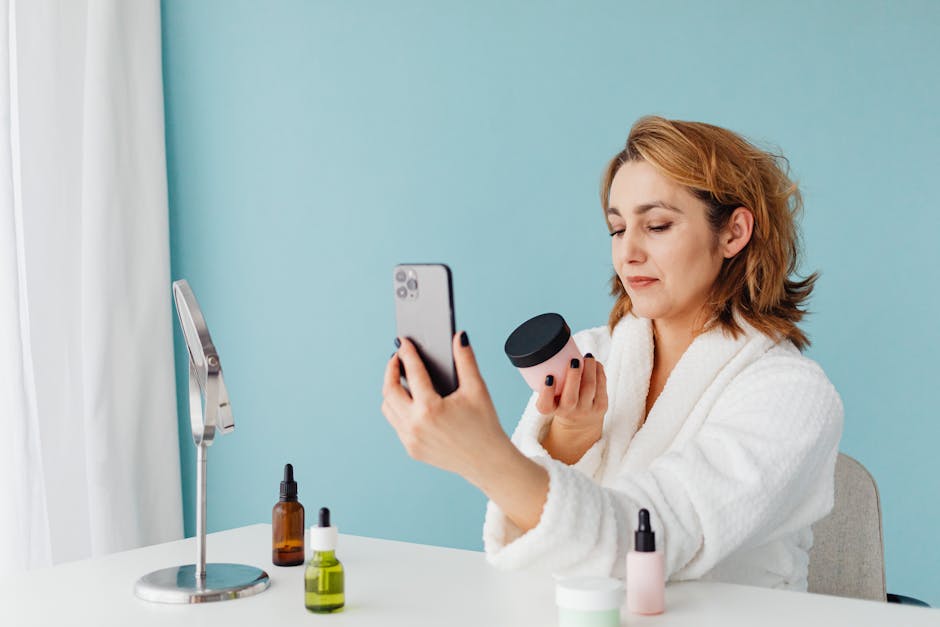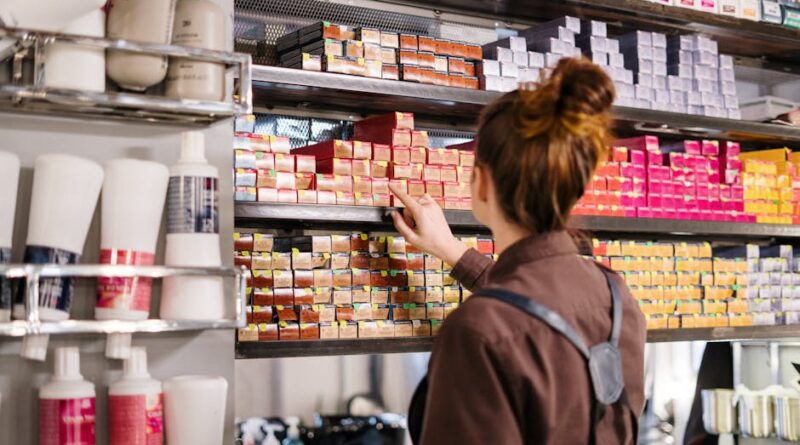The Rise of Influencer-Backed Products
In today’s digital age, social media influencers have become powerful voices that can sway consumer behavior and trends. The phenomenon of influencer marketing has evolved beyond sponsored posts and brand collaborations to a new frontier – influencer-backed products. From beauty lines to clothing collections, influencers are stepping into the role of entrepreneurs, leveraging their massive followings to launch their own products. This trend has taken the marketing world by storm, reshaping traditional business models and challenging established brands. In this comprehensive guide, we delve into the rise of influencer-backed products, exploring the reasons behind their popularity, the impact on consumer choices, and the future implications of this trend.
The Influencer Phenomenon: A Brief Overview

Social media influencers are individuals who have garnered a large following on platforms like Instagram, YouTube, TikTok, and Twitter. These influencers have the power to influence their audience’s purchasing decisions through product recommendations, lifestyle content, and authentic engagement. Brands have long recognized the value of partnering with influencers to reach a wider audience and tap into their influence. However, in recent years, influencers have started to capitalize on their personal brand by creating and launching their own products.
What sets influencer-backed products apart is the direct involvement of the influencer in the product development process. From ideation to marketing, influencers are deeply involved in every step, lending their personal touch and authenticity to the products. This level of engagement creates a unique connection with their followers, who are eager to support their favorite influencers by purchasing their products.
As the lines between traditional advertising and content creation blur, influencers have become key players in shaping consumer trends and preferences. Their ability to create viral moments and drive engagement has made them indispensable to brands looking to connect with a younger, more digital-savvy audience. The rise of influencer-backed products is a natural extension of this trend, as influencers seek to monetize their influence and establish themselves as brands in their own right.
The Appeal of Influencer-Backed Products

One of the main reasons behind the popularity of influencer-backed products is the sense of authenticity and personal connection that influencers bring to the table. Unlike traditional celebrities or brand ambassadors, influencers are perceived as relatable and trustworthy by their followers. Their content often feels more genuine and organic, making their product recommendations more persuasive.
Furthermore, influencers have cultivated a loyal and engaged audience that values their opinions and recommendations. By launching their own products, influencers can leverage this built-in fan base to drive sales and create buzz around their brand. This direct-to-consumer approach allows influencers to bypass traditional retail channels and connect with their audience on a more intimate level.
The rise of influencer-backed products also reflects a shift in consumer behavior towards supporting independent creators and brands. In an era dominated by mass-produced goods and big corporations, consumers are increasingly seeking unique, personalized products that reflect their values and interests. Influencers, with their distinct personalities and aesthetics, are well-positioned to cater to this demand and offer products that resonate with their audience.
Success Stories in Influencer-Backed Products

Several influencers have successfully transitioned from content creators to entrepreneurs by launching their own product lines. One notable example is beauty YouTuber Michelle Phan, who founded the cosmetics brand EM Cosmetics in 2017. Leveraging her expertise in makeup and skincare, Phan created a line of products that reflected her minimalist and natural beauty aesthetic. The brand quickly gained a following among her loyal fans and beauty enthusiasts, establishing Phan as a trailblazer in the influencer-backed products space.
Another success story is fashion influencer Chiara Ferragni, who launched her eponymous clothing and accessories brand, The Blonde Salad, in 2013. With a focus on trendy and accessible fashion, Ferragni built a global lifestyle brand that resonated with her fashion-forward audience. The brand’s success is attributed to Ferragni’s ability to translate her personal style and aesthetic into a cohesive product line that reflects her brand identity.
These success stories highlight the potential of influencer-backed products to resonate with consumers and drive sales. By leveraging their personal brand and creative vision, influencers can create products that stand out in a crowded market and capture the attention of their audience.
The Impact on Traditional Brands

The rise of influencer-backed products has not only disrupted traditional marketing models but also posed a challenge to established brands. As influencers gain more influence and credibility, they are increasingly seen as direct competitors to traditional brands in their respective industries. This shift has forced brands to rethink their marketing strategies and adapt to the changing landscape of influencer marketing.
One way that traditional brands are responding to this challenge is by collaborating with influencers on co-branded products. By partnering with influencers, brands can tap into their audience and leverage their influence to reach new customers. These collaborations often result in limited-edition products or collections that generate excitement and drive sales for both parties.
Another strategy employed by brands is to invest in influencer marketing and ambassador programs to maintain their relevance in the digital space. By partnering with influencers who align with their brand values and target demographic, brands can reach a wider audience and drive engagement on social media platforms. This approach allows brands to leverage the credibility and authenticity of influencers while retaining control over their brand messaging and image.
The Future of Influencer-Backed Products
Looking ahead, the trend of influencer-backed products shows no signs of slowing down. As influencers continue to build their personal brands and expand their reach, they are poised to become key players in the retail and e-commerce landscape. The direct-to-consumer model adopted by many influencers has proven to be highly successful, allowing them to bypass traditional retail channels and connect with consumers on a more personal level.
With the rise of influencer-backed products, consumers can expect to see more diverse and innovative products hitting the market. Influencers bring a fresh perspective and unique voice to product development, resulting in products that reflect their individual style and personality. This authenticity and creativity are what sets influencer-backed products apart from traditional offerings and resonates with consumers seeking something different.
Furthermore, the rise of influencer-backed products is likely to influence other industries beyond beauty and fashion. As influencers branch out into new categories such as home goods, wellness, and technology, the impact of their influence will be felt across a wide range of products and services. This diversification signals a shift in consumer preferences towards supporting independent creators and brands that offer a more personalized and authentic experience.
Expert Opinions
According to marketing expert Sarah Jones, “The rise of influencer-backed products represents a seismic shift in the way brands connect with consumers. Influencers have a unique ability to build trust and credibility with their audience, making their product recommendations more compelling than traditional advertising. Brands that understand the power of influencers and collaborate with them strategically will see significant success in the evolving digital landscape.”
Common Misconceptions
One common misconception about influencer-backed products is that they lack credibility and authenticity. While some skeptics may view influencer collaborations as opportunistic or insincere, many influencers take great care in curating their product offerings and ensuring that they align with their personal brand. By staying true to their values and engaging with their audience transparently, influencers can build a strong and loyal customer base that supports their products.
Conclusion
In conclusion, the rise of influencer-backed products marks a significant shift in the marketing and retail landscape. Influencers have emerged as powerful entrepreneurs and brand builders, leveraging their personal brand and influence to create products that resonate with their audience. The authenticity and creativity of influencer-backed products have captured the attention of consumers seeking something different and personalized in a crowded marketplace.
As influencers continue to innovate and expand into new categories, the influence of influencer-backed products is set to grow even further. Brands that recognize the value of influencers and collaborate with them strategically will be well-positioned to succeed in the rapidly evolving digital landscape. The future of influencer-backed products is bright, offering consumers a diverse and exciting array of products that reflect the unique perspectives and personalities of their favorite influencers.




